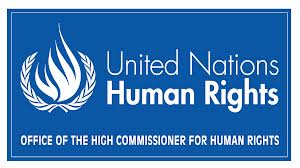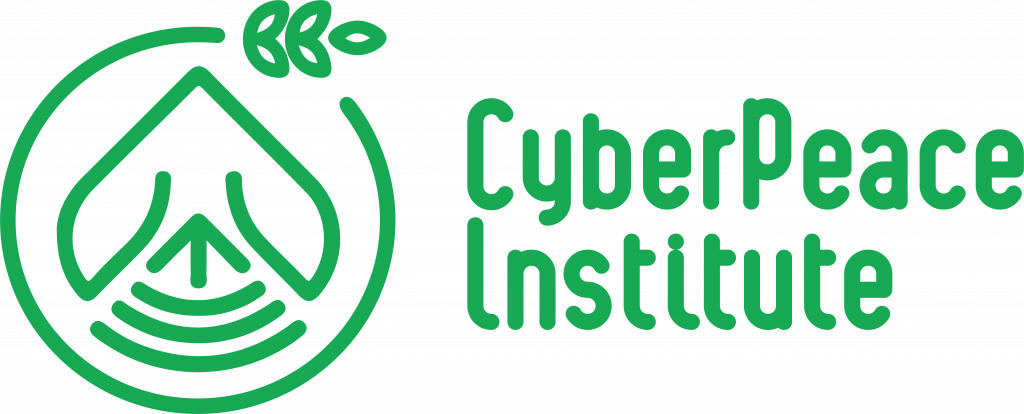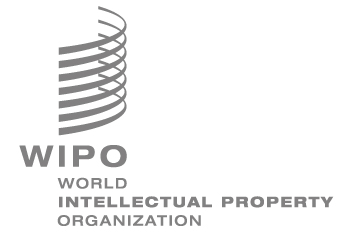Acronym: OHCHR
Address: Palais Wilson 52, Rue des Pâquis, 1201 Geneva, Switzerland
Website: https://www.ohchr.org/
Stakeholder group: International and regional organisations
Privacy and data protection
Challenges to the right to privacy in the digital age, such as surveillance, communications interception, and the increased use of data-intensive technologies, are among some of the issues covered by the activities of UN Human Rights. At the request of the UNGA and the UNHRC, the High Commissioner prepared four reports on the right to privacy in the digital age. The first report, presented in 2014, addressed the threat to human rights caused by surveillance by governments, in particular mass surveillance. The ensuing report, published in September 2018, identified key principles, standards, and best practices regarding the promotion and protection of the right to privacy. It outlined minimum standards for data privacy legal frameworks. In September 2021, the High Commissioner presented a ground-breaking report on AI and the right to privacy (A/HRC/48/31), in which she called for a ban on AI applications that are incompatible with international human rights law, and stressed the urgent need for a moratorium on the sale and use of AI systems that pose serious human rights risks until adequate safeguards are put in place. In September 2022, the High Commissioner presented a report focusing on the abuse of spyware by public authorities, the key role of encryption in ensuring the enjoyment of human rights in the digital age, and the widespread monitoring of public spaces.
The UNHRC also tackles online privacy and data protection. Resolutions on the promotion and protection of human rights on the internet have underlined the need to address security concerns on the internet in accordance with international human rights obligations to ensure the protection of all human rights online, including the right to privacy. The UNHRC has also adopted specific resolutions on the right to privacy in the digital age, addressing issues such as mass surveillance, AI, the responsibility of business enterprises, and the key role of the right to privacy as an enabler of other human rights. Resolutions on the safety of journalists have emphasised the importance of encryption and anonymity tools for journalists to freely exercise their work. Two resolutions on new and emerging technologies (2019 and 2021) have further broadened the lens, for example by asking for a report on the human rights implications of technical standard-setting processes.
The UNHRC has also mandated the Special Rapporteur on the right to privacy to address the issue of online privacy in its Resolution on the Right to Privacy in the Digital Age from 2015 (A/HRC/RES/28/16). To illustrate, the Special Rapporteur has addressed the question of privacy from the stance of surveillance in the digital age (A/HRC/34/60), which becomes particularly challenging in the context of cross-border data flows. More recently, specific attention has been given to the privacy of health data that is being produced more and more in the day and age of digitalisation, and that requires the highest legal and ethical standards (A/HRC/40/63). In this vein, in 2020, the Special Rapporteur examined data protection and surveillance in relation to COVID-19 and contact tracing in his preliminary report (A/75/147), in which he provided a more definitive analysis of how pandemics can be managed with respect to the right to privacy (A/76/220) in 2021. In another
The Office of the United Nations High Commissioner for Human Rights and other related UN human rights entities, namely the United Nations Human Rights Council, the Special Procedures, and the Treaty Bodies are considered together under this section.
The UN Human Rights Office is headed by the OHCHR and is the principal UN entity on human rights. Also known as UN Human Rights, it is part of the UN Secretariat. UN Human Rights has been mandated by the UN General Assembly (UNGA) to promote and protect all human rights. As such, it plays a crucial role in supporting the three fundamental pillars of the UN: peace and security, human rights, and development. UN Human Rights provides technical expertise and capacity development in regard to the implementation of human rights, and in this capacity assists governments in fulfilling their obligations.
UN Human Rights is associated with a number of other UN human rights entities. To illustrate, it serves as the secretariat for the UN Human Rights Council (UNHRC) and the Treaty Bodies. The UNHRC is a body of the UN that aims to promote the respect of human rights worldwide. It discusses thematic issues, and in addition to its ordinary session, it has the ability to hold special sessions on serious human rights violations and emergencies. The ten Treaty Bodies are committees of independent experts that monitor the implementation of the core international human rights treaties.
The UNHRC established the Special Procedures, which are made up of UN Special Rapporteurs (i.e. independent experts or working groups) working on a variety of human rights thematic issues and country situations to assist the efforts of the UNHRC through regular reporting and advice. The Universal Periodic Review (UPR), under the auspices of the UNHRC, is a unique process that involves a review of the human rights records of all UN member states, providing the opportunity for each state to declare what actions they have taken to improve the human rights situations in their countries. UN Human Rights also serves as the secretariat to the UPR process.
Certain non-governmental organisations (NGOs) and national human rights institutions participate as observers in UNHRC sessions after receiving the necessary accreditation.
Digital activities
Digital issues are increasingly gaining prominence in the work of UN Human Rights, the UNHRC, the Special Procedures, the UPR, and the Treaty Bodies.
A landmark document that provides a blueprint for digital human rights is the UNHRC resolution (A/HRC/20/8) on the promotion, protection, and enjoyment of human rights on the internet, which was first adopted in 2012, starting a string of regular resolutions with the same name addressing a growing number of issues. All resolutions affirm that the same rights that people have offline must also be protected online. Numerous other resolutions and reports from UN human rights entities and experts considered in this overview tackle an ever-growing range of other digital issues including the right to privacy in the digital age; freedom of expression and opinion; freedom of association and peaceful assembly; the rights of older persons; racial discrimination; the rights of women and girls; human rights in the context of violent extremism online; economic, social, and cultural rights; human rights and technical standard-setting; business and human rights; and the safety of journalists.
Digital policy issues
Artificial intelligence
In 2018, the Special Rapporteur on the promotion and protection of the right to freedom of opinion and expression presented a report to the UNGA on Artificial Intelligence (AI) Technologies and Implications for the Information Environment. Among other things, the document addresses the role of AI in the enjoyment of freedom of opinion and expression including ‘access to the rules of the game when it comes to AI-driven platforms and websites’ and therefore urges for a human rights-based approach to AI.
For her 2020 thematic report to the Human Rights Council, the UN Special Rapporteur on contemporary forms of racism, racial discrimination, xenophobia, and related intolerance analysed different forms of racial discrimination in the design and use of emerging technologies, including the structural and institutional dimensions of this discrimination. She followed up with reports examining how digital technologies, including AI-driven predictive models, deployed in the context of border enforcement and administration reproduce, reinforce, and compound racial discrimination.
In 2020, the Committee on the Elimination of Racial Discrimination published its General Recommendation No. 36 on preventing and combating racial profiling by law enforcement officials (CERD/C/GC/36), which focuses on algorithmic decision-making and AI in relation to racial profiling by law enforcement officials.
In 2021, UN Human Rights published a report analysing how AI impacts the enjoyment of the right to privacy and other human rights. It clarifies measures that states and businesses should take to ensure that AI is developed and used in ways that benefit human rights and prevent and mitigate harm.
The UN Human Rights B-Tech project is running a Generative AI project that demonstrates the ways in which the UN Guiding Principles on Business and Human Rights should guide more effective understanding, mitigation, and governance of the risks associated with generative AI.
UN Human Rights also weighs in on specific policy and regulatory debates, such as by an open letter concerning the negotiations of a European Union AI Act.
Child safety online Within the work of the OHCHR, ‘child safety online’ is referred to as ‘rights of the child’ and dealt with as a human rights issue.
The issue of child safety online has garnered the attention of UN human rights entities for some time. A 2016 resolution on Rights of the Child: Information and Communications Technologies and Child Sexual Exploitation adopted by the UNHRC calls on states to ensure ‘full, equal, inclusive, and safe access […] to information and communications technologies by all children and safeguard the protection of children online and offline’, as well as the legal protection of children from sexual abuse and exploitation online. The Special Rapporteur on the sale and sexual exploitation of children, including child prostitution, child pornography, and other child sexual abuse material, mandated by the UNHRC to analyse the root causes of sale and sexual exploitation and pro- mote measures to prevent it, also looks at issues related to child abuse, such as the sexual exploitation of children online, which has been addressed in a report (A/ HRC/43/40) published in 2020, but also in earlier reports.
The Committee on the Rights of the Child published its General Comment No. 25 on Children’s Rights in Relation to the Digital Environment (CRC/C/GC/25), which lays out how states parties should implement the convention in relation to the digital environment and provides guidance on relevant legislative, policy, and other measures to ensure full compliance with their obligations under the convention and optional protocols in the light of opportunities, risks, and challenges in promoting, respecting, protecting, and fulfilling all children’s rights in the digital environment.
Data governance
UN Human Rights maintains an online platform consisting of a number of databases on anti-discrimination and jurisprudence, as well as the Universal Human Rights Index (UHRI), which provides access to recommendations issued to countries by Treaty Bodies, Special Procedures, and the UPR of the UNHCR.
UN Human Rights also published a report titled A Human Rights-Based Approach to Data – Leaving no one Behind in the 2030 Agenda for Sustainable Development that specifically focuses on issues of data collection and disaggregation in the context of sustainable development.
UN Human Rights has worked closely with partners across the UN system in contributing to the Secretary-General’s 2020 Data Strategy, and co-leads, with the Office of Legal Affairs and UN Global Pulse, work on the subsequent Data Protection and Privacy Program.
Capacity development
UN Human Rights launched the Guiding Principles in Technology Project (B-Tech Project) to provide guidance and resources to companies operating in the technology space with regard to the implementation of the UN Guiding Principles on Business and Human Rights (UNGPs on BHR). Following the publication of a B-Tech scoping paper in 2019, several foundational papers have delved into a broad range of business-related issues, from business-model-related human rights risks to access to remedies. At the heart of the B-Tech project lies multistakeholder engagement, informing all of its outputs. The B-Tech project is enhancing its engagement in Africa, working with technology company operators, investors, and other key digital economy stakeholders, including civil society, across Africa in a set of African economies and their tech hubs to create awareness of implementing the UNGPs on BHR.
Following a multistakeholder consultation held on 7–8 March 2022, the High Commissioner presented her report on UN Guiding Principles on Business and Human Rights and Technology Companies (A/HRC/50/56), which demonstrated the value and practical application of the UNGPs in preventing and addressing adverse human rights impacts by technology companies.
Extreme poverty Within the work of the OHCHR, ‘extreme poverty’ is dealt with as a human rights issue.
The Special Rapporteur on extreme poverty and human rights has in recent years increased his analysis of human rights issues arising in the context of increased digitisation and automation. His 2017 report to the General Assembly tackled the socio-economic challenges in an emerging world where automation and AI threaten traditional sources of income and analysed the promises and possible pitfalls of introducing a universal basic income. His General Assembly report in 2019 addressed worrying trends in connection with the digitisation of the welfare state. Moreover, in his 2022 report to the UNHRC on non-take-up of rights in the context of social protection, the Special Rapporteur highlighted, among other things, the benefits and considerable risks associated with automation of social protection processes.
Content policy
Geneva-based human rights organisations and mechanisms have consistently addressed content policy questions, in particular in the documents referred under Freedom of Expression and Freedom of Peaceful Assembly and of Association. Other contexts where content policy plays an important role include Rights of the Child, Gender Rights Online, and Rights of Persons with Disabilities. Moreover, the use of digital technologies in the context of terrorism and violent extremism is closely associated with content policy considerations.
UN Human Rights, at the request of the UNHRC, prepared a compilation report in 2016, which explores, among other issues, aspects related to the prevention and countering of violent extremism online, and underscores that responses to violent extremism that are robustly built on human rights are more effective and sustainable.
Additional efforts were made in 2019 when the Special Rapporteur on the promotion and protection of human rights and fundamental freedoms while countering terrorism published a report where she examined the multifaceted impacts of counter-terrorism measures on civic space and the rights of civil society actors and human rights defenders, including measures taken to address vaguely defined terrorist and violent extremist content. In July 2020, she published a report discussing the human rights implications of the use of biometric data to identify terrorists and recommended safeguards that should be taken.
Interdisciplinary approaches
Collaboration within the UN system
UN Human Rights is leading a UN system-wide process to develop a human rights due diligence (HRDD) guidance for digital technology, as requested by the Secretary-General’s Roadmap for Digital Cooperation and his Call to Action for Human Rights. The HRDD guidance in development pertains to the application of human rights due diligence and human rights impact assessment related to the UN’s design, development, procurement, and use of digital technologies, and is expected to be completed by the end of 2022.
As part of the implementation of the Secretary-General’s Call to Action for Human Rights, UN Human Rights launched the UN Hub for Human rights and Digital Technology, which provides a central repository of authoritative guidance from various UN human rights mechanisms on the application of human rights norms to the use and governance of digital technologies.
In addition, UN Human Rights is a member of the Legal Identity Agenda Task Force, which promotes solutions for the implementation of SDG target 16.9 (i.e. by 2030, provide legal identity for all, including birth registration). It leads its work on exclusion and discrimination in the context of digitised identity systems.
Neurotechnology
Rapid advancements in neurotechnology and neuroscience, while holding promises of medical benefits and scientific breakthroughs, present a number of human rights and ethical challenges. Against this backdrop, UN Human Rights has been contributing significantly to an inter-agency process led by the Executive Office of the Secretary-General to develop a global roadmap for effective and inclusive governance of neurotechnology.
Secretary-General’s Report on Our Common Agenda
Since the adoption of A/RES/76/6 on Our Common Agenda in November 2021, the follow-up by the UN system has been underway. UN Human Rights is co-leading several proposals in collaboration with other entities, notably on the application of the human rights framework in the digital sphere, mitigation and prevention of internet shutdowns, and disinformation.
Smart Cities
Making Cities Right for Young People” is a participatory research project, supported by the Botnar Foundation, which examines the impact of the digitalisation of cities on the enjoyment of human rights. It also examines strategies to ensure that “smartness” is measured not solely by technological advancements but by the realisation and promotion of inhabitants’ human rights and well-being, and explores ways to promote digital technologies for civic engagement, participation, and the public good, with a focus on meaningful youth participation in decision-making processes. Launched in 2023, this project will survey the current landscape and detail key human rights issues in urban digitalisation. Based on participatory research carried out in three geographically, socially, culturally, and politically diverse cities, it will produce a report with initial findings and develop a roadmap for future human-rights-based work on smart cities.
Migration
In September 2023, UN Human Rights published a study, conducted with the University of Essex, that analyses the far-reaching human rights implications of specific border technologies. It provides recommendations for states and stakeholders on how to take a human-rights-based approach in ensuring the use of digital technologies at borders aligns with international human rights law and standards. The study draws from a collective body of expertise, research, and evidence, as well as extensive interviews and collaborative meetings with experts.
Privacy and data protection
Challenges to the right to privacy in the digital age, such as surveillance, communications interception, and the increased use of data-intensive technologies, are among some of the issues covered by the activities of UN Human Rights. At the request of the UNGA and the UNHRC, the High Commissioner prepared four reports on the right to privacy in the digital age. The first report, presented in 2014, addressed the threat to human rights caused by surveillance by governments, in particular mass surveillance. The ensuing report, published in September 2018, identified key principles, standards, and best practices regarding the promotion and protection of the right to privacy. It outlined minimum standards for data privacy legal frameworks. In September 2021, the High Commissioner presented a ground-breaking report on AI and the right to privacy (A/HRC/48/31), in which she called for a ban on AI applications that are incompatible with international human rights law, and stressed the urgent need for a moratorium on the sale and use of AI systems that pose serious human rights risks until adequate safeguards are put in place. In September 2022, the High Commissioner presented a report focusing on the abuse of spyware by public authorities, the key role of encryption in ensuring the enjoyment of human rights in the digital age, and the widespread monitoring of public spaces.
The UNHRC also tackles online privacy and data protection. Resolutions on the promotion and protection of human rights on the internet have underlined the need to address security concerns on the internet in accordance with international human rights obligations to ensure the protection of all human rights online, including the right to privacy. The UNHRC has also adopted specific resolutions on the right to privacy in the digital age, addressing issues such as mass surveillance, AI, the responsibility of business enterprises, and the key role of the right to privacy as an enabler of other human rights. Resolutions on the safety of journalists have emphasised the importance of encryption and anonymity tools for journalists to freely exercise their work. Two resolutions on new and emerging technologies (2019 and 2021) have further broadened the lens, for example by asking for a report on the human rights implications of technical standard-setting processes.
The UNHRC has also mandated the Special Rapporteur on the right to privacy to address the issue of online privacy in its Resolution on the Right to Privacy in the Digital Age from 2015 (A/HRC/RES/28/16). To illustrate, the Special Rapporteur has addressed the question of privacy from the stance of surveillance in the digital age (A/HRC/34/60), which becomes particularly challenging in the context of cross-border data flows. More recently, specific attention has been given to the privacy of health data that is being produced more and more in the day and age of digitalisation, and that requires the highest legal and ethical standards (A/HRC/40/63). In this vein, in 2020, the Special Rapporteur examined data protection and surveillance in relation to COVID-19 and contact tracing in his preliminary report (A/75/147), in which he provided a more definitive analysis of how pandemics can be managed with respect to the right to privacy (A/76/220) in 2021. In another












Social media channels
The Institute maintains a website providing alerts, blogs, articles, and publications on key issues related to its mission for cyberpeace, and shares video materials and discussion recordings on YouTube channel.
The latest news and developments are shared via:
Facebook @CyberpeaceInstitute
Instagram @cyberpeaceinst
LinkedIn @cyberpeace-institute
X @CyberpeaceInst
Sign up for the monthly newsletter to receive updates about what’s happening at the Institute, as well as news about cyberpeace.